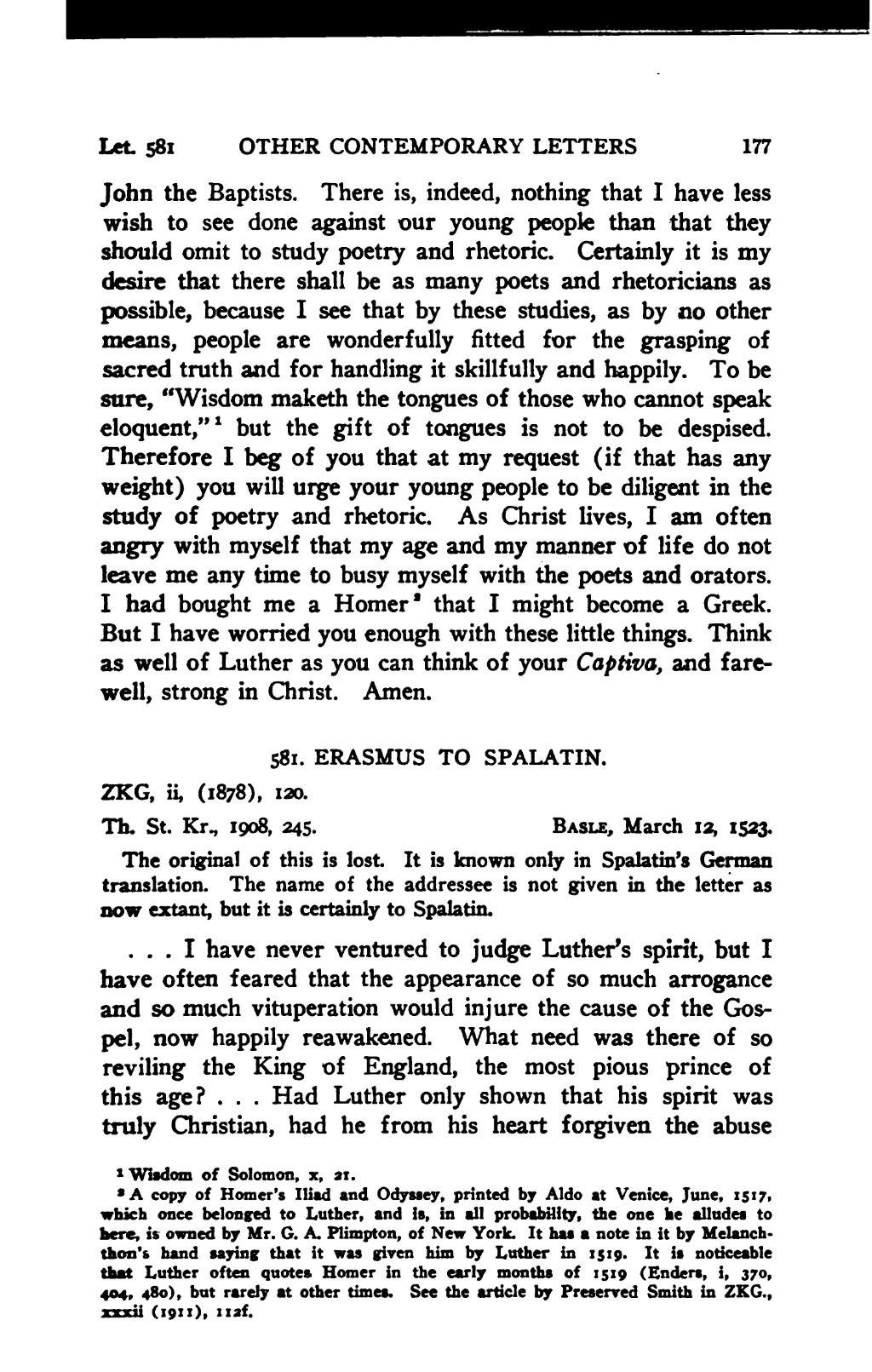John the Baptists. There is, indeed, nothing that I have less wish to see done against our young people than that they should omit to study poetry and rhetoric. Certainly it is my desire that there shall be as many poets and rhetoricians as possible, because I see that by these studies, as by no other means, people are wonderfully fitted for the grasping of sacred truth and for handling it skillfully and happily. To be sare» Wisdom maketh the tongues of those who cannot speak eloquent,"^ but the gift of tongues is not to be despised. Therefore I b^ of you that at my request (if that has any weight) you will urge your young people to be diligent in the study of poetry and rhetoric. As Christ lives, I am often angry with myself that my age and my manner of life do not leave me any time to busy myself with the poets and orators. I had bought me a Homer' that I might become a Greek. But I have worried you enough with these little things. Think as well of Luther as you can think of your CapHva, and fare- well, strong in Christ. Amen.
S8i. ERASMUS TO SPALATIN.
ZKG, ii, (1878), 120.
Th. St. Kr., 1908, 245. Basle, March 12, 1523.
The original of this is lost It is known only in Spalatin's German translation. The name of the addressee is not given in the letter as now extant, but it is certainly to Spalatin.
... I have never ventured to judge Luther's spirit, but I have often feared that the appearance of so much arrogance and so much vituperation would injure the cause of the Gos- pel, now happily reawakened. What need was there of so reviling the King of England, the most pious prince of this age? . . . Had Luther only shown that his spirit was truly Christian, had he from his heart forgiven the abuse
^Wisdom of Solomon, x, ai.
- A copy of Homer's Iliad and Odyssey, printed by Aldo at Venice, June, 1517.
which once belonged to Luther, and is, in all probabilityf the one he alludes to here, is owned by Mr. G. A. Plimpton, of New York. It has a note in it by Melanch- thon's hand saying that it was given him by Luther in 1519. It is noticeable thact Luther often quotes Homer in the early months of 1519 (Enders, i, 370, 404, 480), but rarely at other times. See the article by Preserved Smith in ZKG., (191 1), iiaf.
�� �
